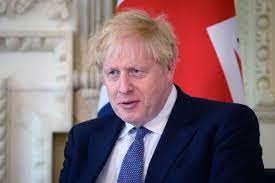Top officials at the Cabinet Office have reportedly cautioned the UK Prime Minister, Boris Johnson, of the dire socio-economic consequences of going ahead with plan to implement the Government’s COVID-19 Plan B for a five-month period.
A news report by inews.co.uk, an online medium, indicated that a leaked Government document projected that going ahead with the plans implementation would cause up to £18 billion economic damage to the country.
The document showed that businesses would be the worst-hit by the tougher restrictions, as millions of workers switch back to home working.
The news medium had earlier predicted that mandatory home working could cost the economy £30 billion yearly, representing one percent of the country’s GDP at 2019 levels.
This is even as the Prime Minister has also been warned implementing COVID-19 passports would have a minimal impact on total transmission but would have a “high impact” on the economy and exacerbate the supply chain crisis.
According to the news medium, the Cabinet Office COVD-19 Task Force revealed these on Tuesday as the Treasury confirmed ministers had been considering implementing Plan B measures, despite the Government’s insistence that the implementation is not yet necessary.
The document further showed that ministers had been working with an “assumption” the restrictions would be in place throughout the winter months, lasting until March 2022.
This implies that tougher restrictions, such as compulsory mask wearing, work-from-home guidance and COVID-19 passports would be enforced until February 2022.
An internal Treasury impact assessment has warned that implementing the measures for almost half a year is estimated to cost the economy between £11 billion and £18 billion, which is estimated to be more than £800 million per week.
The report also found businesses will be the worst affected, as people stop commuting and return to work from home.
However, the Scientific Advisory Group for Emergencies (Sage) found that Government advice to work from home would be the most effective measure in transmitting the pandemic, thereby prompting the Prime Minister to, once again, re-assess the economic and health costs of toughening restrictions.
Overall, the COVID-19 Task Force warned of the stark economic impact of moving to Plan B and could not find clear evidence that the measures would significantly reduce COVID transmission.
This explains why the Prime Minister has been reluctant to implement Plan B despite rising COVID cases.
A Government spokesperson was quoted by inews.co.uk as saying: “We knew the coming months would be challenging, which is why we set out our autumn and winter plan last month. Plan B ensures we are ready, should we need to act, to avoid an unsustainable rise in hospitalizations which would put unsustainable pressure on the NHS.
“The presumptions put forward do not reflect government policy… There is no planned five-month timeline”, the spokesperson clarified.






